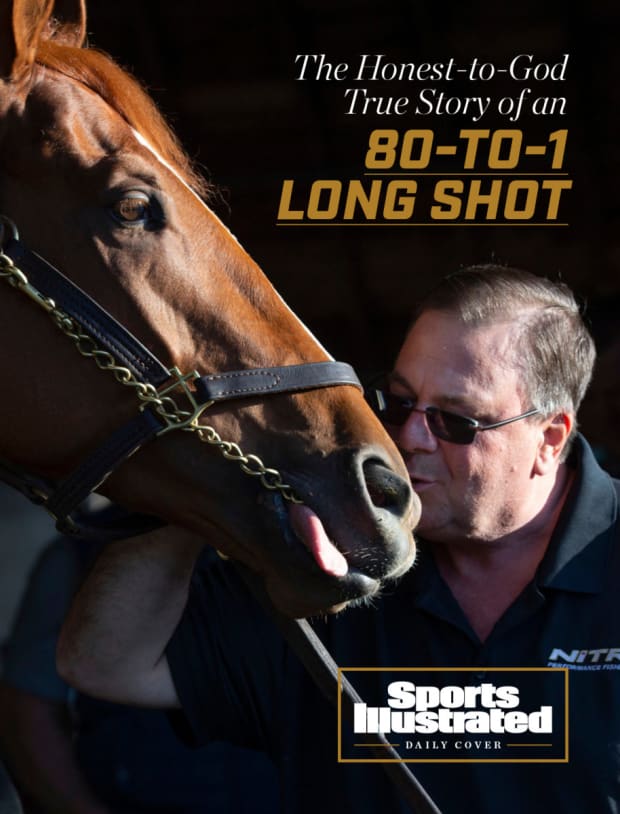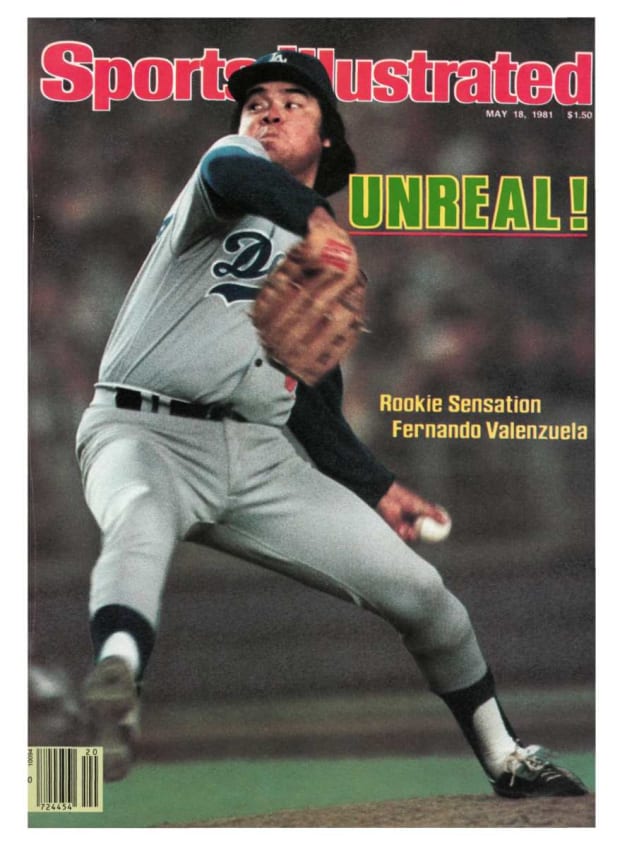U.S. Soccer has finally resolved its equal pay dispute with a historic pair of agreements.
Good morning, I’m Dan Gartland. I woke up to some welcome news in sports.
In today’s SI:AM:
Why Rich Strike’s owners skipped a Triple Crown shot
A landmark deal
The U.S. women’s national team’s years-long battle for equal pay is over after the unions for both the men’s and women’s national teams reached historic agreements on new collective bargaining agreements with the U.S. Soccer Federation.
The current fight over equal pay dates back to March 2016, when five players from the women’s team accused U.S. Soccer of wage discrimination in a filing with the Equal Employment Opportunity Commission. The USWNT escalated the fight in 2019 when it filed a gender discrimination lawsuit against the federation, which was finally settled in February.
It was an ugly, contentious battle, with one especially difficult hurdle to climb: FIFA’s unequal treatment of men and women. How would U.S. Soccer pay both national teams equally when prize money for men’s tournaments (especially the World Cup) dwarfs that of women’s tournaments?
The men and women came up with a simple but radical solution: Pool their prize money and split it equally.
“[The two CBAs are] highlighted by an unprecedented provision that will combine and then split World Cup prize money awarded by FIFA, which was among the pillars of the USWNT’s equal pay pursuit. While the American women were given $4 million for winning the 2019 Women’s World Cup, a first-round exit from the 2018 World Cup in Russia would’ve been worth $8 million to the men (had they qualified). France, the men’s champion, took home $38 million—more than the entire pool on offer to the 24 women’s participants the following year.
“U.S. Soccer couldn’t make up the difference on its own. The federation and the USWNT needed cooperation from the men, whose appearance later this November-December in Qatar will be worth a minimum of $10.5 million, according to reports. And they got it.”
But that’s just one way that U.S. Soccer is leveling the playing field. Players from both national teams will now earn the same amount of money for each training camp and match appearance and earn the same performance incentives. USWNT players had been salaried under the previous CBA but will now be compensated under the same pay-for-play model as the men.
There are also noncash considerations that will be made equal:
“The federation also agreed to provide match venues, fields, hotel accommodations, support and staffing of equal quality and comparable cost to both the USMNT and USWNT, as well as the same number of charter flights. Select USWNT players also will be afforded health and short-term disability insurance, as well as parental leave.”
The joint agreements are revolutionary. They could (and should) pave the way for other countries’ national teams to follow suit and close the wage gap between its players. In the short term, though, it’s an important and well-earned win for the U.S. women after a long fight.
The best of Sports Illustrated

You already know about Rich Strike, the surprise Kentucky Derby winner, but Pat Forde has the story of the horse’s owner in today’s Daily Cover:
“Unwanted and uneducated, Herbert Ray Reed says he walked out of an Appalachian hollow as a child in the 1950s and never went back. His mother had died when he was 5 years old, and the family structure unraveled after that. Hitching a predawn ride on a cattle truck at 9 years old led him away from dark times in Pecks Creek Hollow in rural Powell County to this town of Versailles, where he showed up unannounced at his aunt’s house. ‘My God, honey,’ he recalls her saying to him. ‘How did you get here?’”
The Heat opted for speed to dominate the second half in their Game 1 win over the Celtics, Michael Pina writes. … Ahead of Game 1 of the Western Conference finals tonight, Chris Herring has five reasons why the Mavericks will beat the Warriors. … With the NBA lottery behind us, Jeremy Woo can finally do his first mock draft according to the real order. … The latest episode of SI Weekly isn’t for people with sensitive ears. Howard Beck joins to talk about his story on profanity in the NBA.
Around the sports world
Jimmy Butler outscored the Celtics by himself in the third, on his way to a 41-point night. … The Coyotes won’t be allowed to put their logo at center ice while they play at Arizona State’s arena for the next three years. … Former Buccaneers guard Ali Marpet opened up about his decision to retire from the NFL at 28. … Matt Harvey has been suspended 60 games by MLB after testifying that he provided opioids to late Angels pitcher Tyler Skaggs.
The top five...
… moments in baseball last night:
5. Aaron Judge’s two homers against the Orioles
4. The Astros hitting five homers in one inning (all off Nathan Eovaldi, who is just the third pitcher in MLB history to allow five homers in a single inning)
3. The same fan at Fenway catching two of those homers
2. José Berríos’s mom throwing out the first pitch to her son
1. Cubs rookie Christopher Morel’s home run in his first big league at bat and his reaction afterward
SIQ
(A quick correction from yesterday’s newsletter: I said that Billy Martin was traded to the Royals when in fact the team in Kansas City in 1957 was the A’s. The Royals didn’t join the league until ’69.)
Yesterday I asked which team denied the Islanders their fifth straight Stanley Cup in 1984 (see the answer below). On the topic of long championship streaks, on this day in 1960, which club won its fifth consecutive European Cup by defeating Eintracht Frankfurt, 7–3?
Yesterday’s SIQ: Who snapped the Islanders’ streak of four straight Stanley Cups in 1984?
Answer: The Oilers. I’ll take a closer look at the Islanders next week in the From the Vault section, so I’ll focus on Edmonton here.
The Oilers were a team on the rise in the early 1980s. They finished with the second-best record in the NHL in the ’81–82 season but were knocked off by a far inferior Kings team (that finished with a 24-41-15 record) in the first round of the playoffs. Edmonton was just as good in the ’82–83 season, though, and breezed through the playoffs, losing just one game in the first three rounds before going up against the Islanders buzz-saw.
The Oilers didn’t have to wait long for revenge. In 1983–84, they had by far the best record in the league (57-18-5), led by Wayne Gretzky, who had his second 200-point season (he’d surpass 200 points in both of the next two seasons, too). They advanced to the Cup final again, but the script was different this time. New York goalie Billy Smith, whose .913 postseason save percentage was best in the league in ’83, stopped just 87.8% of shots he faced in the series. The Oilers scored seven goals in both Games 3 and 4. In the decisive Game 5, he was pulled at the start of the second period after allowing two goals on nine shots.
The championship marked the beginning of the Oilers’ own dynasty. Though they didn’t run off four in a row like the Islanders, between 1984 and ’90, Edmonton won five Stanley Cups. Those titles are the only ones in Oilers franchise history. Could Connor McDavid change that this year?
From the Vault: May 18, 1981

Manny Millan/Sports Illustrated
Fernando Valenzuela had made only seven major league starts before he landed on the cover of Sports Illustrated. So why was he the no-brainer choice for that week’s cover athlete? Because he went nine innings in all seven of those starts—and he was only 20 years old.
The Dodgers purchased Valenzuela’s contract from his Mexican league team in July 1979. After impressing in the minor leagues, the Dodgers called him up in September ’80, and he didn’t allow an earned run in 10 relief outings. That success made him a player to watch in ’81.
When scheduled Opening Day starter Jerry Reuss was injured on the eve of the season, manager Tommy Lasorda tabbed Valenzuela to take his place. He threw a complete-game, five-hit shutout.
In his first seven starts, he allowed just two runs and threw five complete-game shutouts, striking out 61 in 63 innings. The reaction to his sudden emergence as the most unhittable pitcher in the game became known as “Fernandomania,” and SI sent Jim Kaplan to Shea Stadium to get a look at Valenzuela for himself, although there was no way he was going to get any one-on-one time with the phenom:
“Two weeks earlier Valenzuela had complained to his agent, Antonio De Marco, that he was getting so much attention he didn’t have time to shag flies or take batting practice, much less prepare for his next start. So for the NL West leader’s first Eastern road trip of the season, the Dodgers laid down new media guidelines. There would be one press conference on Valenzuela’s first day in each town and another after he pitched. That would be that.”
It wasn’t just American media that was obsessing over Valenzuela’s hot start. In Venezuela, the number of Venezuelan radio stations carrying Jaime Jarrín’s Spanish-language broadcast of Dodgers games had doubled from 20 to 40. In Mexico, it increased from three to 17. Back in Valenzuela’s hometown in northwestern Mexico, Etchohuaquila, his family had previously been forced to listen to Padres broadcasts in hopes of hearing reports on Valenzuela’s starts during out-of-town scoreboard updates.
Valenzuela kept it up throughout the rest of the strike-interrupted season, leading the majors with eight complete-game shutouts. He had a 2.48 ERA and led the majors with 180 strikeouts in 192⅓ innings. Those numbers made him a clear choice not only for the National League Rookie of the Year award but also the Cy Young.
The Dodgers gave Valenzuela the ball five times during their postseason run that year, including in the decisive Game 5 of the NLCS against the Montreal Expos. He allowed one run in 8⅔ innings as Los Angeles picked up the win to advance to the World Series against the Yankees in which Valenzuela allowed four runs over nine innings in a Game 3 win to avoid falling into a 3–0 hole. The Dodgers went on to win the championship, and Valenzuela cemented his status as a fan favorite in Los Angeles.
Check out more of SI’s archives and historic images at vault.si.com.
Sports Illustrated may receive compensation for some links to products and services on this website.